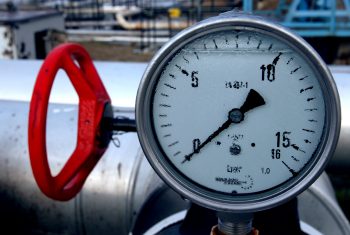 May 2014 • Tribune 41 •
May 2014 • Tribune 41 •
Three main events, within the last decade, have been affecting the gas business in the Balkans. At first, President Putin’s geopolitical strategy. One of President Putin’s principal objectives is to restore some of Russia’s former global power status. Ukraine is central to this strategy. Russian’s violation of Ukrainian sovereignty in Crimea could be the first step in an attempt to control the entire country and, at the same time, a test to NATO’s effectiveness. However, it is not just a matter of expanding its turf, but the Crimea annexation has also economic implications as, for instance, the exploitation of Crimea onshore and offshore natural resources, in particular, gas – conventional or non-conventional- depriving Ukraine of them. Russia’s endeavors to control the gas routes to Europe, including the ones crossing the Balkans, and to oppose eastern European countries to exploit shale gas, are aimed at maintaining those countries dependent on Russian gas supply with, as far as possible, oil indexed long term contracts and so at securing its own gas exports.
Then, EU’s position towards Russian gas routes. According to the EU legislation known as the Third Energy Package, which is still in the process of being implemented, an energy company cannot be responsible for production, distribution and sales because the EU defines that as monopoly. Such monopoly practices actually describe Russian energy companies like Gazprom. The European Commission urged Russia to adapt its gas system to EU legislation, in particular, to conform to EU unbundling and third party access to pipelines requirements. Brussels is also investigating whether Gazprom is offering fair gas tariffs. The negotiations on the “South Stream” pipeline route crossing Bulgaria, Serbia, Hungary Slovenia to Italy, are postponed pending the settlement of such legal issues. Another reason to block negotiations is Russian alleged support to Russian speaking protesters in Eastern Ukraine. In spite of the April agreement between Russia, the US and the EU, nothing has changed since then, except Austria’s OMV’s agreement, signed on April 29, 2014, with Gazprom to build a branch of South Stream to Austria. Would this move be the first step to save South Stream pipeline project? If the EU member states that have signed the South Stream agreement, do not comply with their obligations towards Russia, Moscow could plead the case before the International Court of Justice.
Finally, Shale gas. Natural gas is the world’s fastest growing fossil fuel with consumption increasing at an average rate of 1.6%/year from 2008 to 2035. It has traditionally served the needs of three major types of customers: manufacturers, power generators and residents using gas for heating and cooling. A fourth one is emerging more recently: gas powered automotive vehicles. Low natural gas prices in the US and Canada are beneficial for steelmakers, producers of chemicals, petrochemistry and fertilizers industry. For some of these users, gas is a feedstock. That is the reason why domestic shale gas deposits should be explored in the EU countries. Shale gas could also be imported from the US and Canada although not immediately at a significant scale. Indeed, existing gas terminals need to be converted from gasification to liquefaction or new such terminals should be built. On the other hand, the Obama administration should clear the way for broader natural gas exports, trading prospective benefits from gas exports off possible downsides for the US economy. “Proponents of such trade off (including the oil and gas industry) claim that exporting inexpensive shale gas will help the US trade balance, shore up energy-poor US allies and so on. Opponents counter that exports may cause domestic prices to rise, hurting consumers and some industries such as chemicals that have benefited from cheap natural gas”. Actually, the Obama administration started approving gas exports but on a case by case basis. For instance, Freeport LNG has signed preliminary 20-year contracts to sell much of export facility’s capacity to Chu Bu Electric Power Co, Osaka Gas Co and BP Energy Co. Substantial imports of low-priced shale gas would lower Japan’s trade deficit and put it in a better position in price negotiations for gas imports from the Middle East.


